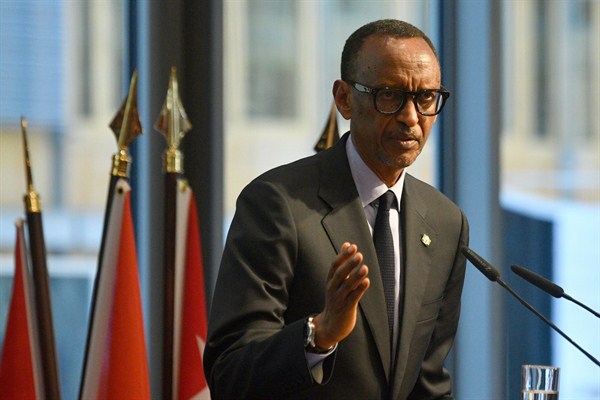In a country where political opponents and outspoken critics of President Paul Kagame have a tendency to turn up dead or disappear, the official explanation of the death of a popular Rwandan gospel singer last week was immediately met with skepticism. The singer, Kizito Mihigo, had been arrested at the border earlier this month for allegedly trying to flee the country illegally and join armed rebels in neighboring Burundi. Three days later, he was found dead in his cell; the police say he committed suicide.
Some of Mihigo’s songs run counter to the government’s preferred narrative about the Rwandan genocide, and he had previously spent four years in jail on charges of inciting hatred and trying to assassinate Kagame before being pardoned in 2018. After his death, outside observers suspected foul play or at least negligence on the part of authorities, while human rights groups called for a thorough and swift investigation.
The precise circumstances surrounding Mihigo’s death may never be known. But whatever the cause, the episode underscores how much trust and legitimacy Rwanda’s government has lost under Kagame recently. Twenty-six years after the genocide that killed an estimated 800,000 people, most of them from the ethnic Tutsi minority, the turnaround overseen by Kagame no longer looks as simple as it is often made out to be. The official line, that poverty is down while health and education indicators are up, has begun to unravel. It is getting harder and harder for Kagame to deny those critical voices who argue that the peace and development that emerged from the ashes of genocide might have been significantly exaggerated—and have come at the expense of harsh repression by his government.

